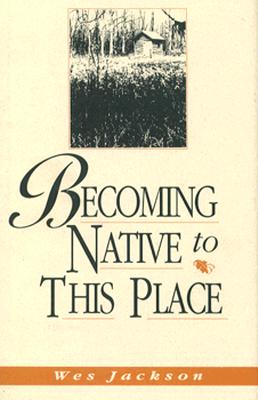The Way of Ignorance
In order to arrive at what you do not know
You must go by a way which is the way of ignorance. (T.S. Eliot, “East Coker”)
So reads the passage from which Wendell Berry’s 2005 essay collection The Way of Ignorance takes its title. Ranging from essays of a page or two, to full-length lectures and conference presentations, to letters, these essays address topics that Mr. Berry has been writing about for many years: What is the cost of globalization, and who pays it? What is the difference between local knowledge, and corporate knowledge? How do you measure and improve the health of land? What is involved in National Security? What makes for the good — truly good — life? Perhaps most central: how can we solve the problem our increasing violence to one another and the world?
The range of essays offers new readers of Berry a good introduction to, and old readers a further development of, some of his main themes. Berry’s continued “kneading” of his subject for over 40 years is part of what gives him such credibility, along with his willingness to practice what he preaches in the way he lives and farms.
But in two areas, I was left unsure of how to take this book. One area is Berry’s attitude toward Christianity. As in past collections, this one takes up the issue of the Bible’s teaching. “Many of us are still withholding credence,” he writes, “from any person or institution claiming to have the definitive word on the purposes and the mind of God.” I can relate to the suspicion of “persons or institutions” that act like they have all eternity figured out and all the mystery squeezed out. But “withholding credence” is a negative statement that doesn’t work well into the affirmative texture of the rest of Berry’s life as a committed, placed husbandman. Here is the positive statement he provides:
When Jesus speaks of having life more abundantly, this, I think, is the life He means: a life that is not reducible by division, category, or degree, but is one thing, heavenly and earthly, spiritual and material, divided only insofar as it is embodied in distinct creatures. He is talking about a finite world that is infinitely holy, a world of time that is filled with life that is eternal. His offer of more abundant life, then, is not an invitation to declare ourselves as certified “Christians,” but rather to become conscious, consenting, and responsible participants in the one great life, a fulfillment hardly institutional at all.
As a statement that refuses to simplify or demystify the world, it’s successful. But I’m not sure I understand it beyond that.
Another area that left me scratching my head was politics. The concluding section of the book contains a letter from Berry to Montana politician Daniel Kemmis, who had apparently written out of concern for the democrat party. The letter offers Mr. Berry’s advice for the party (a theme struck as well in “Some Notes for the Kerry Campaign, If Wanted” earlier in the book), and is followed by Mr. Kemmis’s reply. After so much ink is devoted to arguing for cultural changes that must be enacted in the small sphere of the individual life, it was deflating that Mr. Berry would make a case for either political party, least of all the one that advocates more government interference. I began to see in this collection that part of the role of government for Mr. Berry is to enact protections for small farmers (and smallness of all kinds, perhaps). In a global economy, such intervention may be necessary. I’m not sure. But my first impulse (which I haven’t gotten past yet) is to see the preoccupation with politics, which is essentially top-down in its influence and corporate in its affiliations and its mentality, as inconsistent with the great substance and momentum of Mr. Berry’s 40-year body of work.
The Berry I prefer is not the politician or the theologian. The Berry I prefer is the one who encourages me that I can make a difference by writing paragraphs like this one:
If we find the consequences of our arrogant ignorance to be humbling, and we are humbled, then we have at hand the first fact of hope: We can change ourselves. We, each of us severally, can remove our minds from the corporate ignorance and arrogance that is leading the world to destruction; we can honestly confront our ignorance and our need; we can take guidance from the knowledge we most authentically possess, from experience, from tradition, and from inward promptings of affection, conscience, decency, compassion, even inspiration.
I may not share Mr. Berry’s optimism about our ability to change ourselves. In my worldview, we need a savior from without to accomplish true rebirth. But to add my worldview to Mr. Berry’s emphasis on personal choices is to gain all the more reason for hope.
I’ll include one last favorite excerpt as a conclusion:
All of us who are committed to saving things of value have been in what Wes Jackson calls “the ain’t-it-awful conversation,” in which we recite the current litany of outrages. We have been in the conversation, and, if we have brought to it a modicum of sanity, we have recognized sooner or later the need to get out of it. The logical end of the ain’t-it-awful conversation, as of the life devoted to opposition, is despair. People quit having any fun, they begin to talk about the “inevitability” of what they are against, and they give up. Mere opposition finally blinds us to the good of the things we are trying to save. And it divides us hopelessly from our opponents, who no doubt are caricaturing us while we are demonizing them. We lose, in short, the sense of shared humanity that would permit us to say even to our worst enemies, “We are working, after all, in your interest and your children’s. Ours is a common effort for the common good. Come and join us.”



